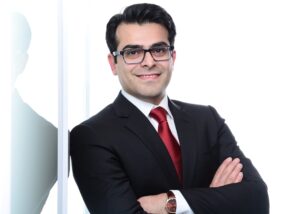Arash Alimardani Lavasan joined the University of Luxembourg in September 2023 as Associate Professor in computational soil mechanics and foundation engineering.
Could you introduce yourself?
“I am a geotechnical engineer with a strong passion for research in the fields of experimental and computational soil mechanics, particularly focusing on their applications in foundation engineering, underground space engineering, and sustainable energy geotechnics. After completing my PhD in 2010, I embarked on my academic career as a postdoctoral scholar at Ruhr University Bochum in Germany, funded through the prestigious Alexander von Humboldt research fellowship. In 2014, I assumed the role of project leader at the collaborative research center SFB-837 and became the principal investigator at the Research Department of Subsurface Engineering at Ruhr University Bochum. In these roles, I supervised numerous students and PhD candidates, and actively contributed to the development of advanced numerical models and experimental tools for assessing the behavior of coupled geotechnical systems. I also established a strong network and played a pivotal role in organizing special issues in high quality peer-reviewed journals, hosting well-attended workshops and coordinating mini symposia at international conferences.”
Why did you join the University of Luxembourg?
“In my academic career, I have established robust collaborations with universities in Germany, France and Belgium. One of the great advantage of working at the University of Luxembourg as a professor is the strong collaborative infrastructure offered by the University and the Luxembourg National Research Fund (FNR) that provides vast opportunities for collaboration, funding, and access to state-of-the-art facilities across the countries. Moreover, the University of Luxembourg has demonstrated a dynamic and evolving character, indicated by a strong emphasis on new technologies and the joint actions between university and industry. This active commitment to innovation and entrepreneurship is one of the key symbols of the university that fosters both education and research by facilitating the transformation of ideas into substantial tools.”
What will be your main activities and challenges?
“In my new role, my primary mission is to develop cutting-edge research in several critical areas such as resilient geostructures, geohazard and risk mitigation in geotechnics, sustainable energy geotechnics, and underground space engineering, all with a special focus on contributing to a more sustainable future. I am deeply committed to addressing the challenges posed by climate change and its impact on geotechnical infrastructures. One of the key challenges in fulfilling these objectives is offering high-quality, modern education to our students to enable training young civil engineers with the expertise needed to support the Luxembourg’s rapidly growing industry, simultaneously, tutoring the next generation of talented researchers for future research activities. Another essential challenge would be obtaining funding to enable building research teams and establishing consortiums that include international research partners from universities, public institutions, and private firms. This collaborative approach facilitates interdisciplinary research and fosters the knowledge exchange and skills transfer across different sectors.”
